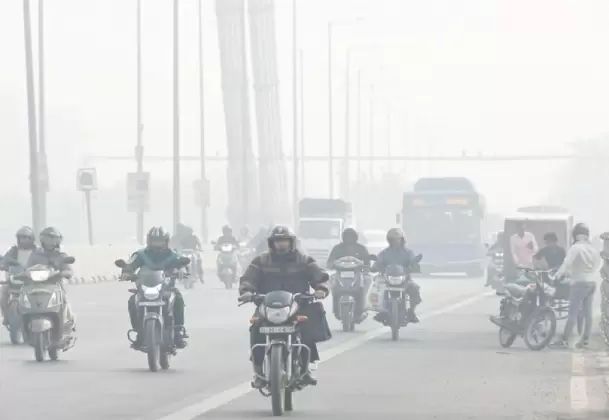India Achieves 7.93% Drop in GHG Emissions in 2020, Demonstrates Climate Leadership
13-January-2025

India, which achieved a 7.93 per cent reduction in greenhouse gas (GHG) emissions in 2020 compared to 2019, is demonstrating its commitment to a sustainable, climate-resilient future, the government said on Sunday.
The country pledged to achieve net-zero emissions by 2070 at the 26th Conference of the Parties (COP 26) in 2021, said the Ministry of Environment, Forest and Climate Change in a statement.
India’s 4th Biennial Update Report (BUR-4) highlighted a 7.93 per cent reduction in GHG emissions in 2020 compared to 2019. The country submitted BUR-4 to the United Nations Framework Convention on Climate Change (UNFCCC) on December 30, 2024.
“Excluding Land Use, Land-Use Change, and Forestry (LULUCF), India’s emissions were 2,959 million tonnes of CO2e (carbon dioxide equivalent, a way to measure the impact of GHG),” the report mentioned.
Including LULUCF, net emissions were 2,437 million tonnes of CO2e. The energy sector was the largest contributor, accounting for 75.66 per cent of emissions, along with other land use, sequestered approximately 522 million tonnes of CO2, equivalent to reducing 22 per cent of the country’s total emissions.
"These efforts reflect India's commitment to combating climate change while addressing its national circumstances, based on equity and the principles of the Paris Agreement," the ministry emphasised.
India, despite contributing minimally to global warming, faces significant challenges due to its large population and developmental needs. The country is committed to low-carbon development and building climate resilience while addressing its unique circumstances.
India’s historical share of cumulative global GHG emissions is annual 4 per cent, despite having around 17 per cent of the world’s population between 1850 and 2019.
"India’s annual primary energy consumption per capita in 2019 was 28.7 gigajoules (GJ), considerably lower than both developed and developing countries," according to the report.
The country has devised Long-Term Low Greenhouse Gas Emission Development Strategies (LT-LEDS) to chart a sustainable path forward in addressing climate change, which includes low-carbon development of electricity systems consistent with the development of an integrated, efficient, inclusive low-carbon transport system.
It also includes promoting adaptation in urban design, energy and material efficiency in buildings & sustainable urbanisation, promoting economy-wide decoupling of growth from emissions and development of an efficient, innovative low-emission industrial system and enhancing forest and vegetation cover consistent with socio-economic and ecological considerations.
"India is implementing key initiatives like its Long-Term Low Emission Development Strategy and the Miyawaki tree planting at Maha Kumbh 2025. These efforts ensure balanced growth and environmental responsibility, paving the way for a climate-resilient future," said the ministry. —IANS
Suspended Kerala IAS Officer Prasanth Raises Promotion Demand During Hearing
How BluSmart Promoters Diverted EV Loans, Bought Flat In DLF Camellias
Homegrown Coffee Chain Nothing Before Coffee Raises $2.3 Million Funding
Supreme Court to Hear Pleas Challenging Waqf Act 2025 Today
Kerala Minister Slams NCERT for Hindi Titles in English Textbooks








